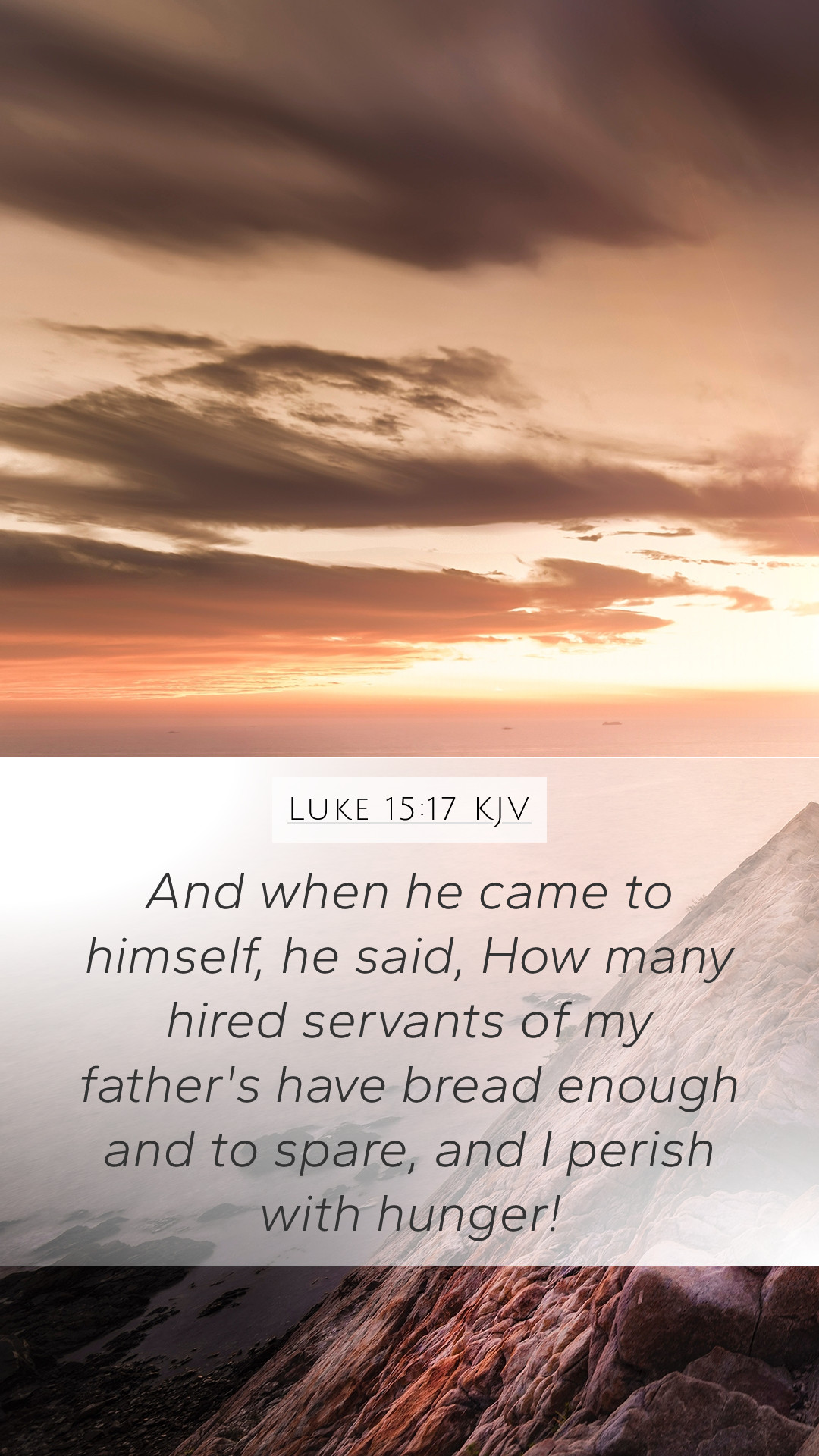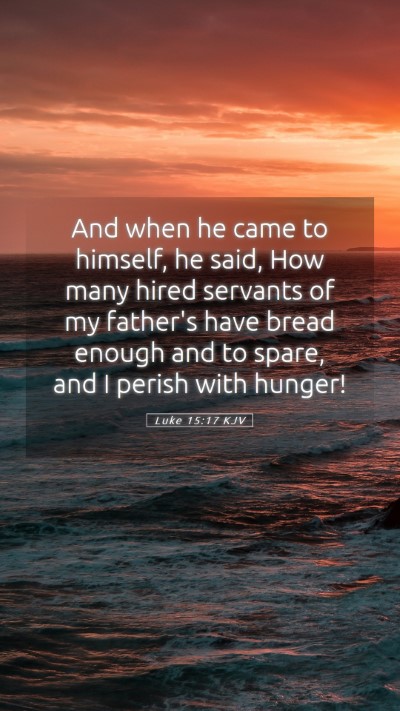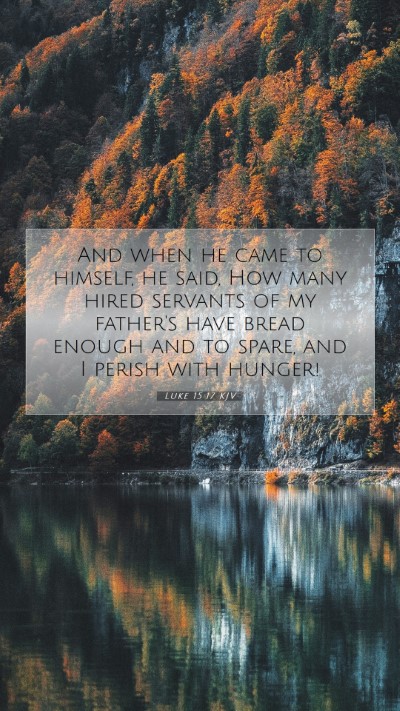Understanding Luke 15:17
Bible Verse: Luke 15:17 - "And when he came to himself, he said, How many hired servants of my father’s have bread enough and to spare, and I perish with hunger!"
In this verse, we encounter a pivotal moment of realization and introspection from the Prodigal Son in the parable told by Jesus. This moment encapsulates themes of repentance, recognition of one's state, and the contrasting abundance of the Father's house compared to the emptiness of the Son's current existence.
Verse Analysis
This verse serves as a turning point in the narrative, reflecting profound Bible verse meanings related to repentance and self-awareness.
1. The Realization of Poverty
Matthew Henry comments on the importance of the son "coming to himself," suggesting that this denotes a critical awakening to his dire circumstances. He notes:
"He comes to a sense of himself, discovers his misery, and begins to reflect on the goodness of his father."
2. Reflection on Abundance
Albert Barnes highlights the stark contrast between the son’s current state and the abundance he once enjoyed, emphasizing:
"He remembers that even his father's hired servants had enough to eat, while he is perishing. This serves to illustrate the care and provision found in the Father’s house."
3. Symbolism of the 'Hired Servants'
Adam Clarke provides insight into the significance of the hired servants, indicating:
"They were in a better condition than he was now, which reflects the overwhelming grace that the Father extends, even to the least of his servants."
Thematic Insights
Combining these interpretations gives a nuanced understanding of this verse. Key themes include:
- Awakening to Reality: The son’s journey back to a conscious acknowledgment of his unfulfilled life reflects a broader spiritual awakening.
- Grace and Acceptance: The abundance of the Father's provision serves as a metaphor for God's grace, inviting us into deeper Bible verse understanding.
- Contrast of Conditions: The realization of the Father’s care for the servants highlights God's unchanging love and mercy.
Application to Daily Life
This verse encourages reflection in Bible study groups and personal study. Here are a few applications:
- Self-Reflection: Are there areas in your life where you feel lost or disconnected? Like the Prodigal Son, consider where you might “come to yourself.”
- Understanding Resources: Realize the resources available through God’s grace - the abundance we have in Christ.
- Return and Repentance: This passage calls for coming back to God, recognizing the need for humility and repentance.
Cross References
For deeper understanding, consider these related Bible verses:
- Luke 15:11-32: The entire Parable of the Prodigal Son.
- John 6:35: Jesus as the bread of life.
- Matthew 11:28: Come to Me, all you who labor and are heavy laden.
Conclusion
Luke 15:17 stands as a significant reflection of human experience with God, portraying the journey from despair to hope. Engaging deeply with such Bible verse interpretations can catalyze profound spiritual transformation.


